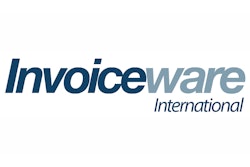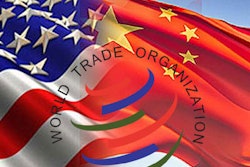
Global businesses constantly strive to make processes more efficient in order to save time and resources, and better utilize talent. While business-to-government (B2G) regulatory compliance measures may seem like the antitheses of this mission, recent mandates in Mexico are actually paving the way for automation and helping multinationals streamline operations.
Mexico, along with many other countries in Latin America, is enforcing an increasing number of e-invoicing mandates, fiscal reporting and tax requirements that require a high degree of standardization. A means to proactively combat tax fraud, these measures frequently require significant changes to business operations, but the end result can be a high degree of automation, decreasing error rates, and increasing productivity and efficiency.
Mexico’s Evolving B2G Landscape
Mexico began requiring Comprobante Fiscal Digital a Través de Internet (CFDI) e-invoicing in 2012, providing Mexico’s tax authority with visibility into financial transactions in order to minimize tax fraud. The return on investment was immediate, with the country receiving 61 pesos for every one peso it spent on audits. Based on this success, Mexico recently introduced e-accounting requirements, called eContabilidad, requiring companies operating in the region to provide their chart of accounts, monthly trial balances and journal entries to support tax deductions.
Combining these financial requirements, companies with operations in Mexico are required to show a direct link between their individual invoices, accounting reports and tax deductions. Any error or discrepancy can trigger fines, penalties and even operational shutdowns. The critical nature of this process on business operations requires a fundamental shift in the way many finance and accounting departments operate. For example, no more is a departmental line item for payroll acceptable—each pay stub must be individually linked from the accounting record to the original transaction.
Likewise, relying on manual accounts payable (AP) processes is extremely risky. The data required is cumbersome—for example, Mexico requires a 30+ digit, case-sensitive, alphanumeric unique identifier code, and a single typo in the code can result in fines. With an approximate 7 percent error rate in codes entered, these mistakes can quickly add up.
This government scrutiny demands complete accuracy, and the only way to ensure that tax deductions are ultimately correct is to automate the three-way match to guarantee that the purchase order, goods receipt and supplier’s invoice are identical. Any deviations can result in audits and lost tax deductions.
Ultimately, Mexico’s new eContabilidad mandate is setting the bar for other countries, many of which are poised to quickly follow suit with similar requirements. Despite challenges, this presents a unique opportunity for companies to deploy AP automation that enhances productivity, efficiency and cash flow.
The Benefits of Automating AP
While Mexico’s new eContabilidad mandate may present operational challenges for companies doing business there, those that automate their AP process stand to experience a higher level of efficiency and ensure complete compliance through:
1. Reduced Risk
The reduced risk of audits, fines and penalties is one of the most important benefits of automating AP processes for companies operating in Mexico’s strict B2G environment. Despite the benefits of automation, some companies still pay invoices off of the PDF instead of the government-approved XML. With as many as 10 percent of all XML invoices not matching their PDF counterparts, this process is a certain audit trigger. When the AP process is automated, the collection, validation and processing of invoices and required reporting can all be linked directly within a company’s enterprise resource planning (ERP), ensuring an instant three-way match and eliminating the chance of inconsistencies. Such automated reporting ensures that government tax deductions and credits are valid and verifiable.
2. Increased Internal Efficiency
With automated AP, finance teams can focus on exceptions, inaccuracies and innovations. Since invoices can be verified in advance and marked OK to pay as soon as goods are received, AP teams eliminate the need for manual data entry and verifications.
3. Optimized Cash Flow
Automating AP processes also results in significant cash flow benefits. Because XML invoices can be verified before goods are received, invoices can be approved for payment the moment the goods arrive to their destination. This is a win-win for buyers and suppliers, opening the door for supply chain finance and driving liquidity into the supply chain base.
Remaining Locally Compliant and Globally Competitive
Despite challenges, B2G compliance mandates in Mexico and throughout Latin America are paving the way for efficiencies, including AP automation, that are setting a standard for operations worldwide. With similar mandates beginning to spread to countries across the world, global companies have the opportunity to proactively address compliance, while improving their processes and optimizing cash flow. In Latin America, one of the strictest B2G regulated environments in the world, businesses are finding benefit in standardization to not only reduce the risk of fines, penalties and audits, but to drive innovation as well. Companies around the globe have much to learn from these forward-thinking enterprises.
Scott Lewin is the president and chief executive officer of Invoiceware International. He is focused on helping multi-national corporations navigate the complex world of Latin American compliance and realize opportunities to turn this government standardization into business efficiencies. He has been instrumental in extending Invoiceware International’s leadership position in the e-invoicing services and solutions market through accelerated growth and operational improvements. An expert on global B2B, e-invoicing and cash flow trends, he is responsible for corporate strategy and defining the Latin American compliance platform.













